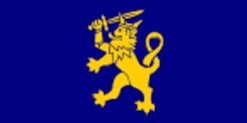Note to readers: This post appeared as a column in the Armidale Express on 22 December 2010. I am repeating the columns here with a lag because the Express columns are not on line. You can see all the columns by clicking here for 2009, here for 2010
I was browsing around trying to find material for a piece I was trying to write when I stumbled across a copy of the December 1923 edition of The Armidalian, the TAS magazine. Here I found the answer to a question that had always puzzled me.
I knew that TAS had presented a play in Sydney totally in Classical Greece. This had puzzled me, because I went to the school Latin was still taught, but there was no sign of Classical Greek. I knew that it had been taught, but to actually put a full play on in the original language struck me as unusual.
I now know that the Play was presented in December 1923, with bookings at Palings. Nor, it appears, was this the only arcane play on the bill.
Before talking about the play, I need to introduce you to one of TAS’s most famous eccentrics, William Charles Wentworth IV.
Born in 1907, WCW IV better known as Bill or Billy Wentworth was the great grandson of the first William Charles Wentworth. He was bright, precocious and somewhat idiosyncratic.
Indeed, there is has been a wonderful strain of eccentricity through the Wentworths from the first WCW to modern columnist Mungo Wentworth MacCallum, Bill Wentworth’s nephew. I knew Mungo in Canberra, not well, and he could be very entertaining.
Stories about Bill Wentworth were still alive when I went to TAS all those years later, although by then it was hard to separate fact from fiction.
There was the time he blew up the science lab trying to make explosives! Then he persuaded the Head to create a school fire brigade.
Bored with parading on front field, he decided to carry out a small live drill. They set a small fire in the school Agriculture building.
As the smoke billowed forth and the school bell rang, the suspiciously ready fire brigade gathered. They had wrapped the hose around the heavy school roller used on the playing fields and, pushing it before them, charged down the hill towards the smoke.
Nearing the building, one boy fell. The rest lost control of the roller which charged ahead, smashing through the weatherboard wall of the building!
I am not aware of what happened to Bill Wentworth on this occasion, but it clearly did not affect his ability to write the editorial for the December 1923 Armidalian.
The editorial was a passionate statement of the importance of Greek. Classical Greece was the foundation of our culture. Knowledge of Greek was still important for those wishing to study at English universities. The growing number of boys studying Greek held out the possibility of TAS becoming the centre of Hellenic studies in Australia.
Now all this may sound a bit pie in the sky, but there was clearly a push on. The Sydney Morning Herald of Monday 17 December records:
“The Armidale School Dramatic Society will present the Greek play, "Prometheus Vinctus of Aeschylus" in the original Greek; the Quarrel Scene from Corncillo's "Le Cid;' and "Gaspard de Coligny," by W. Wentworth Shields (an old boy), at the King's Hall this evening. Plan at Paling's”.
Looking at The Armidalian, it appears that the quarrel scene from Le Cid was presented in the original French, while Gaspard de Coligny is a melodrama based on the French aristocrat and Huguenot leader of the same name.
Quite impressive, actually.
The reference to English universities is not as strange as it would seem. It was then not unusual for TAS boys with better-off parents and with academic inclinations to consider Oxford or Cambridge as an alternative to Sydney. The foundation of UNE was still some years ahead.
Wentworth went from TAS to Oxford, as had David Ogilvy (Ilparran Station) a few years before. In 1925, The Armidalian recorded that a number of boys were considering Oxford or Cambridge.
Wentworth’s visions of the future were to founder on a Great Depression that almost brought the school to its knees and was then followed by the Second War War.
Wentworth himself went into Federal politics. There he became an anti-communist warrior. However, he is now best known for his pioneering work for Aboriginal advancement, including his appointment as the first Federal minister with responsibility for Aboriginal Affairs.












No comments:
Post a Comment